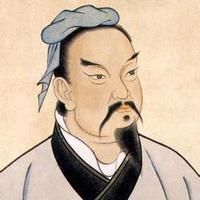謀攻 第三
strategic attack|third
conspiracy to attack the third
Asesinato 3º
孫子 曰 : 凡 用兵 之 法 , 全 國 為 上 , 破 國 次之 ; 全 軍 為 上 , 破軍 次之 ; 全 旅 為 上 , 破 旅 次之 ; 全 卒 為 上 , 破 卒 次之 ; 全 伍 為 上 , 破 伍 次之 。
||||||||for||||next|||||breaking the army|||unit||||army unit||preserve|soldiers||||soldiers|||squad||best|||
Sun Tzu said: In all methods of using the army, the whole country is the best, and the breaking of the country is second; the whole army is the best, and the army is broken; the whole brigade is the best, and the broken brigade is second; On the top, broken ranks second.
是故 百戰百勝 , 非 善 之 善 者 也 ; 不 戰 而 屈 人 之 兵 , 善 之 善 者 也 。
therefore|||||||||battle||subduing||||||||
For this reason, a hundred victories in a hundred battles are not the good ones; those who do not fight and subdue the soldiers are the good ones.
故 上兵 伐 謀 , 其次 伐 交 , 其次 伐 兵 , 其 下 攻城 。
|the best troops|attack|strategy|secondly|attack|allies||attack||||attack the city
Therefore, when the upper armies attack the Miao, the second is to attack the Jiaotong, the second is to attack the soldiers, and the lower ones attack the city.
攻城 之 法 , 為 不得已 。
siege|||for|inevitable choice
The method of siege is a last resort.
修 櫓轒轀 , 具 器械 , 三 月 而後 成 ; 距 闉 , 又 三 月 而後 已 。
build|scaffolding wheels|with|equipment|||after||after|the wall||Three months|||
The repair of the rucks and the rafters, with the equipment, took three months to complete; the Juryan took another three months to complete.
將 不勝 其 忿 , 而 蟻附 之 , 殺 士 三分之一 , 而 城 不 拔 者 , 此 攻 之 災 也 。
|cannot withstand||anger||ant attach||||one-third||||fall|one who||attack||disaster|
If the general is overwhelmed by his anger and the ants attack him, killing a third of the soldiers, but the city cannot be taken out, this attack will be a disaster.
故 善 用兵 者 , 屈 人 之 兵 , 而 非 戰 也 , 拔 人 之 城 而 非 攻 也 , 毀 人 之 國 而 非 久 也 , 必 以 全 爭 於 天下 , 故 兵 不 頓 而 利 可 全 , 此 謀攻 之 法 也 。
||||subdue||||||war||capture|||city|and||attack||destroy||||||||||whole|strive for||||||stagnate||||||strategic attack|||
Therefore, those who are good at using military force should subjugate the enemy's army instead of fighting, conquer the enemy's city instead of attacking it, destroy the enemy's country instead of lasting for a long time, and fight for the whole country with the whole country. The method of attack is also.
故 用兵 之 法 , 十 則 圍 之 , 五 則 攻 之 , 倍 則 分 之 , 敵 則 能 戰 之 , 少 則 能 逃 之 , 不 若 則 能 避 之 。
|||||rule|surround||||||double|rule|divide||enemy||||||||||||||avoid|
Therefore, the method of using troops is to encircle it if it is ten, to attack it if it is five, to divide it if it is doubled, to fight the enemy if it is small, to escape if it is small, and to avoid it if it is small.
故 小敵 之 堅 , 大敵 之 擒 也 。
|small enemy||strength|great enemy|of||
Therefore, the small enemy is strong and the big enemy can be captured.
夫 將 者 , 國 之 輔 也 。
now|will||||support|
The husband general is the auxiliary of the country.
輔 周 則 國 必 強 , 輔 隙 則 國 必 弱 。
assist|assistance|then||must|strong||gaps||||weak
If you assist Zhou, the country will be strong; if you assist Zhou, the country will be weak.
故 君 之所以 患 於 軍 者 三 : 不 知 軍 之 不可以 進 而 謂 之 進 , 不 知 軍 之 不可以 退 而 謂 之 退 , 是 謂 縻 軍 ; 不 知 三軍 之 事 , 而 同 三 軍 之 政 , 則 軍士 惑 矣 ; 不 知 三軍 之 權 , 而 同 三軍 之 任 , 則 軍士 疑 矣 。
|you|of|suffer|to||||||||cannot|advance||is called||||||||||||retreat||is called|bind||||||||||||affairs|then||confused|is perplexed|||||authority|||||responsibility|||doubt|
Therefore, there are three reasons why a ruler suffers from the army: if he does not know that the army cannot retreat, then he calls it an advance; if he does not know that the army cannot retreat, he calls it a retreat, which is called an army; if he does not know the affairs of the three armies, and the government of the three armies is the same, the soldiers will be confused. That's right; if you don't know the power of the three armies, but if you share the responsibilities of the three armies, then the sergeants will be suspicious.
三軍 既 惑 且 疑 , 則 諸侯 之 難 至 矣 。
three armies|already|confused|and|||feudal lords||difficulty||
是 謂 亂軍 引 勝 。
||chaotic army||
It means that the rebel army leads to victory.
故 知 勝 有 五 : 知 可以 戰 與 不可以 戰 者 , 勝 。
therefore||victory||||||with||||victory
Therefore, there are five ways to know victory: He who knows whether to fight or not can win.
識 眾寡 之 用 者 , 勝 。
knowledge|the many and the few||||
上下 同 欲 者 , 勝 。
上下上下||||
以 虞 待 不虞 者 , 勝 。
|||unexpected||
將 能 而 君 不 御 者 , 勝 。
此 五 者 , 知 勝 之 道 也 。
故 曰 : 知己知彼 , 百 戰 不 貽 ; 不 知 彼 而 知己 , 一 勝 一 負 ; 不 知 彼 不 知 己 , 每 戰 必 敗 。
||know yourself and your enemy||||lose|||the enemy||||||lose||||||||||

